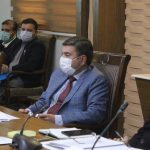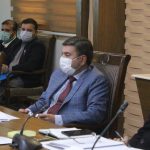In Khyber Pakhtunkhwa, the informal sector remains the most precarious due to the outbreak of COVId-19. About 40% of the provincial economy is made up of manufacturing, construction and wholesale sectors, which also employ a major portion of the informal sector labour force. While agriculture sector has remained largely unscathed so far, the biggest contributor of the provincial economy with a 32.6% share cannot be taken for granted. Ensuring the livelihoods of the unemployed and laid-off workers after the outbreak of COVId-19 was a major challenge for the Government of Khyber Pakhtunkhwa.
The Planning and development department acted immediately to offset the economic and employment repercussions of the COVId-19 outbreak by leading the Provincial Task Force to tackle economic and employment issues. The department has successfully adopted Vital Economic Operations Management, which is the scientific data-backed approach feeding into the policies of the Government of Khyber Pakhtunkhwa through informed decision-making and prudent resource-allocation. The coping strategy was also prepared to deal with the short-term aspects of crisis management and now the Azm-e-Nau is our approach to calibrate the government’s response under the post-crisis economic recovery plan.
This is our collective endeavour to avert the economic fallout caused by the COVId-19 pandemic through major interventions in nine key sectors to boost the economy in the short term and provide societal benefits in the long term. These sectors include economic growth, education, emergency response, governance, health, jobs for development, public works, small and medium enterprise and social protection. Through these interventions, we aim to contain the spread of the virus to keep the health system optimally functional, while at the same time, undertake specific measures to recover economic costs and employment losses.


